Some unlikely Atlanta women are spending hours on the Internet looking for child prostitutes, but not for personal gratification. They’re volunteers who are monitoring websites that advertise children under categories such as “escorts” as part of a new front in the war against sexual trafficking.
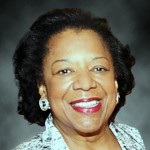
Deborah Richardson
“We have found every quarter an exponential increase in the number of girls being exploited,” said Deborah Richardson, executive vice president of the National Center for Civil & Human Rights. “One reason is the internet. Anyone can sit at home and order a young girl for sex as easily as ordering a pizza.” And just as a customer can specify pizza toppings, children can be ordered online by skin color, hair color and age, she said.
Richardson spoke on a panel Friday at Atlanta’s North Avenue Presbyterian Church as part of a town hall meeting called “Take a Stand Against Demand.” The breakfast gathering was sponsored by the Atlanta Women’s Foundation and A Future Not a Past, a campaign spearheaded by the Juvenile Justice Fund.
Speakers emphasized the need to target traffickers, pimps, customers and online advertisers.
Traffickers have found a lucrative business in selling children for sex, Richardson said. “Unlike drugs and guns, girls sell over and over again.”
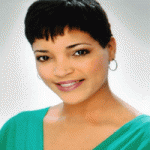
Jennifer Swain
After the online advertising site Craigslist came under fire last year and shut down its “adult services” section, many of the illicit sex ads moved to a site called Backpage.com, Jennifer Swain, state coordinator of A Future Not a Past said Friday. Volunteers in Atlanta are searching Backpage sites targeted to Atlanta, Saint Louis and Houston for possible child sex advertisements and forwarding suspicious cases to the National Center for Missing and Exploited Children.
The cases aren’t hard to find. In a single four-hour session last week, a handful of volunteers found dozens of possibilities. The monitoring will continue for eight weeks, Swain said. “We’re going to give Backpage a run for their money,” she vowed.
Local law enforcement agencies and courts are also stepping up efforts to curb the sale of children for sex, panelists said.
Det. Carol Largent of Cobb County’s Crimes Against Children Unit said her department made a commitment last fall to pursue such cases more intently through methods such as following up on runaway reports. “Within a couple of months,” she said, “we were averaging a case a week of girls involved in prostitution.”
Police agencies need to work with schools, juvenile courts and social service agencies, she said, because children who are truants or runaways can become victims of exploitation.
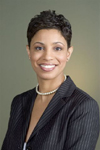
Sonja Brown
Fulton County Assistant District Attorney Sonja Brown said her office currently has three open trafficking cases, seven open pandering cases and 17 pimping cases, nine involving juveniles. Fulton prosecutors pile on charges such as rape, child molestation and cruelty whenever possible to try to increase prison sentences for people charged with exploiting children for sex, she said.
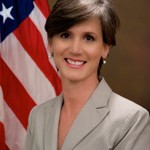
Sally Yates
On the federal level, U. S. Attorney Sally Yates pointed out that on February 1, Attorney General Eric Holder and other Obama administration officials announced a national crackdown that will involve inter-agency “anti-trafficking coordination teams.” But child trafficking has “long been a priority in our office,” she said.
The same assets, such as transportation, that make Atlanta a business and convention hub make it appealing for child traffickers, she said. “One real problem in Atlanta right now is young women brought in from Mexico.”
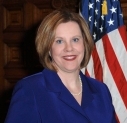
Renee Unterman
State Sen. Renee Unterman (R-Gwinnett), an outspoken advocate of treating juveniles caught up in the sex trade as victims, not criminals, said she is encouraged by all the grassroots organizations in Georgia that are taking up the cause. The only Republican woman in the Senate introduced a bill last year that would have kept juveniles under 16 from being charged as criminals, diverting them instead to treatment or therapy. The bill died without a hearing. Unterman did not say whether she would reintroduce it, but she urged advocates to continue to speak up for children in the sex trade. “I believe children are victims,” she said. “There’s a certain segment out there that believes they’re criminals. That’s why the legislation is being blocked.”
Richardson of the National Center for Civil & Human Rights also spoke optimistically. “I believe we have come to a tipping point with this issue where we can stop it,” she said. She cited the civil rights movement and the crusade against drunk driving that succeeded when enough people became concerned and involved.
“But shame on us for allowing this to happen,” she said. “Shame on us.”
Thanks for sharing such a nice piece of post.
Thanks a lot.